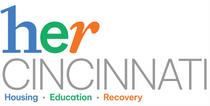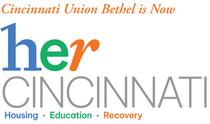
OFF THE STREETS
OHIO: A CROSSROADS FOR SEX TRAFFICKING
Ohio has the fifth-highest rate of human trafficking in the country, with 3.84 cases reported per 100,000 people (World Population Review 2021). The Ohio Attorney General’s Human Trafficking Commission has found that “drug, alcohol, or other dependenc[ies]” are the leading risk factors for trafficking victimization in Ohio.
Based on the most recent data available, substance use concerns, mental health concerns, and unstable housing rank among the top five risk factors for all forms of trafficking, with substance use the leading risk factor for sex trafficking victimization and the fifth-leading risk factor for labor trafficking victimization.
Of note, “inducing or exploiting substance use disorders” was the leading form of force, fraud, and/or coercion used by sex traffickers in 2019 (Polaris 2019).
In focus groups with 102 survivors of domestic sex trafficking, researchers from Georgetown University and the University of Virginia found that 84.3% used alcohol, drugs, or both during their victimization. Additionally, more than a quarter (27.9%) reported that “forced substance use was a part of their trafficking experience,” and 26% reported overdosing during their victimization.
Overall, the co-occurring traumas of victimization and addiction leave survivors “physically, mentally, and emotionally devastated” and, tragically, “this devastation is lasting—with injuries, illnesses, and impairments continuing for decades” (Lederer 2019). Outside of substance use disorders, these impairments often include post-traumatic stress disorder, frequent headaches, memory loss, sexually transmitted infections, dental problems, weight loss/malnutrition, eating disorders, sleep disturbances, and insomnia.

A PATH TO HOPE THROUGH OFF THE STREETS
HER CINCINNATI’s Off the Streets (OTS) program serves female survivors of human trafficking living with substance use disorder. All of the women served by the OTS program struggle with physical and mental health conditions as a result of their victimization and addictions, and all are living with co-occurring traumas. Our program utilizes a culturally-sensitive, trauma-informed model to help survivors of sex trafficking find safety, recovery, and empowerment and guides them on a path to a healthy and productive lifestyle.







